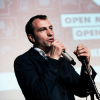Making an Open Information Age: Power, Freedom and Inequality in an Age of Bits
About This Session
If you have ever been online, watched a movie or taken a medicine you have been a user of information. Today information in the form of software, databases and innovations is becoming more important than ever before. Information is becoming main thing we make, trade and use.
This is a new world being built on "bits". Its virtual nature makes it different from the physical world of bread and land and cars which can only have one user at a time. By contrast, information can be used by many at the same time — it is nonrival in the terminology of economists.
The implications of nonrivalry are huge. It makes a world of open information both possible and desirable — that is a world in which all public information can be openly and freely used, shared and built on. This is a world where no-one is denied access to life-saving medicines because of cost, where everyone has access to our cultural heritage, where artists, innovators and creators are paid more and more fairly.
But getting there will not be easy. Dystopia is the default: if we do nothing we will get a world of exclusion and control where information is made to play by the same rules as our old physical one using "intellectual property" monopoly rights like copyright and patents.
In this talk we will explore the road ahead and explain why we can and must create a world of open information and its implications for our technology, politics, laws and economics.
View the Presentation
Moderator
Kevin S. Hawkins
- Assistant Dean for Scholarly Communication, University of North Texas Libraries
Presenters
Rufus Pollock
- President of Open Knowledge
Dr Rufus Pollock is Founder and President of Open Knowledge, an international non-profit using advocacy, technology and training to unlock information and see it used to create insight that drives change.
More Info.Logistics
When:
Where:
Track I: The Forum (on ground floor)
University of North Texas: Willis Library

